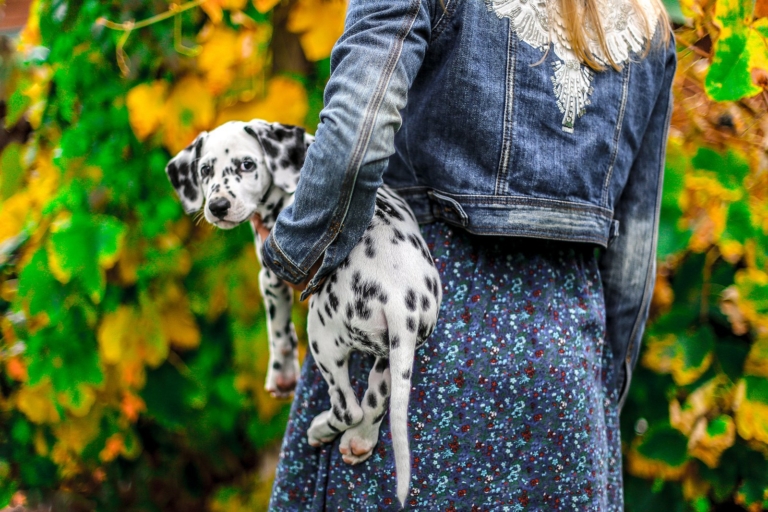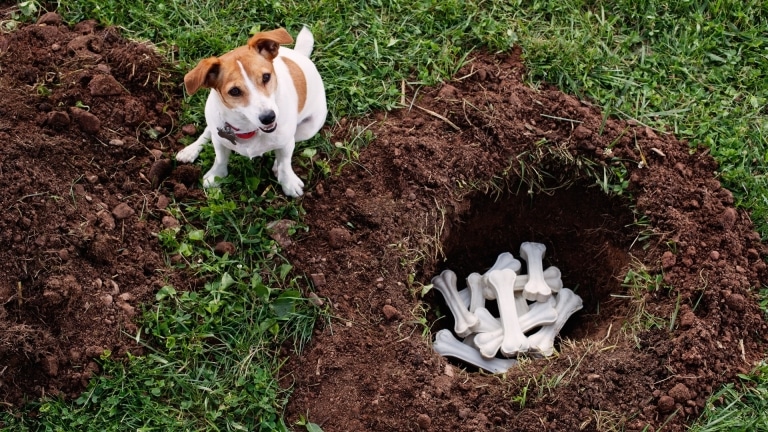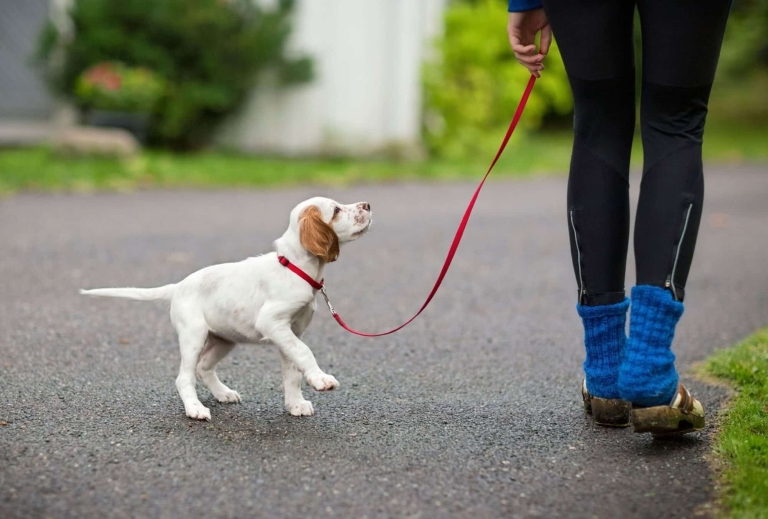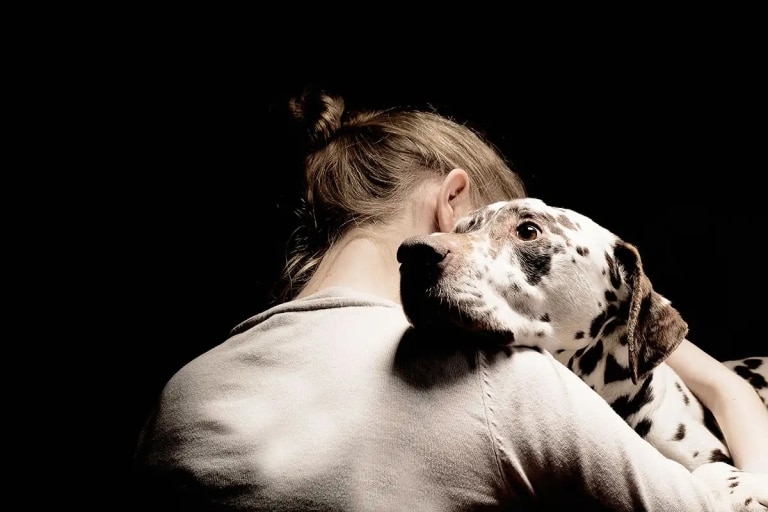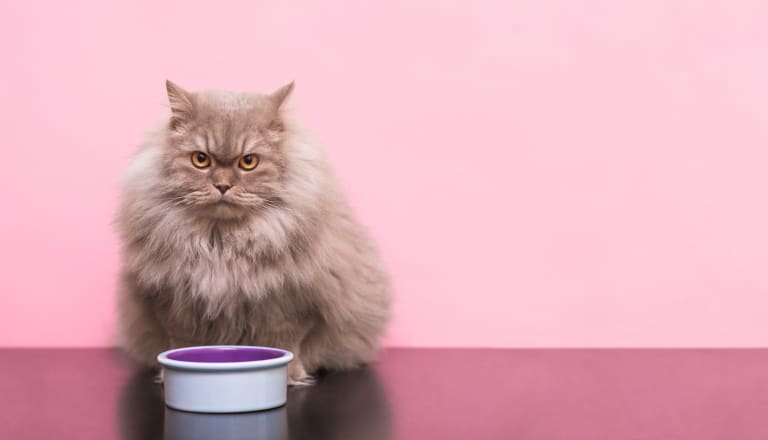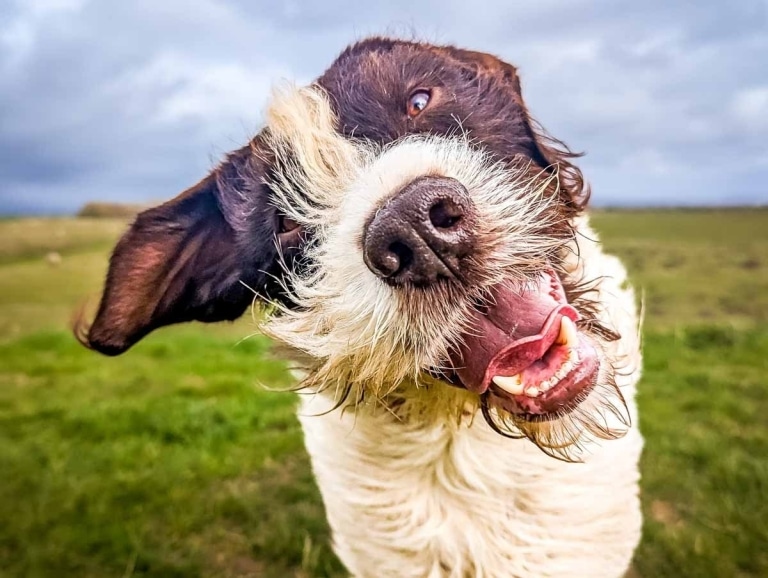If you have ever seen a Dalmatian, you will surely remember it forever. These dogs seem to have stepped out of a fairy tale: aristocratic posture, graceful movements, and a legendary spotted coat that is unmistakable. But behind their striking appearance lies an equally fascinating personality. Let’s dive into the world of Dalmatians and learn about their care.
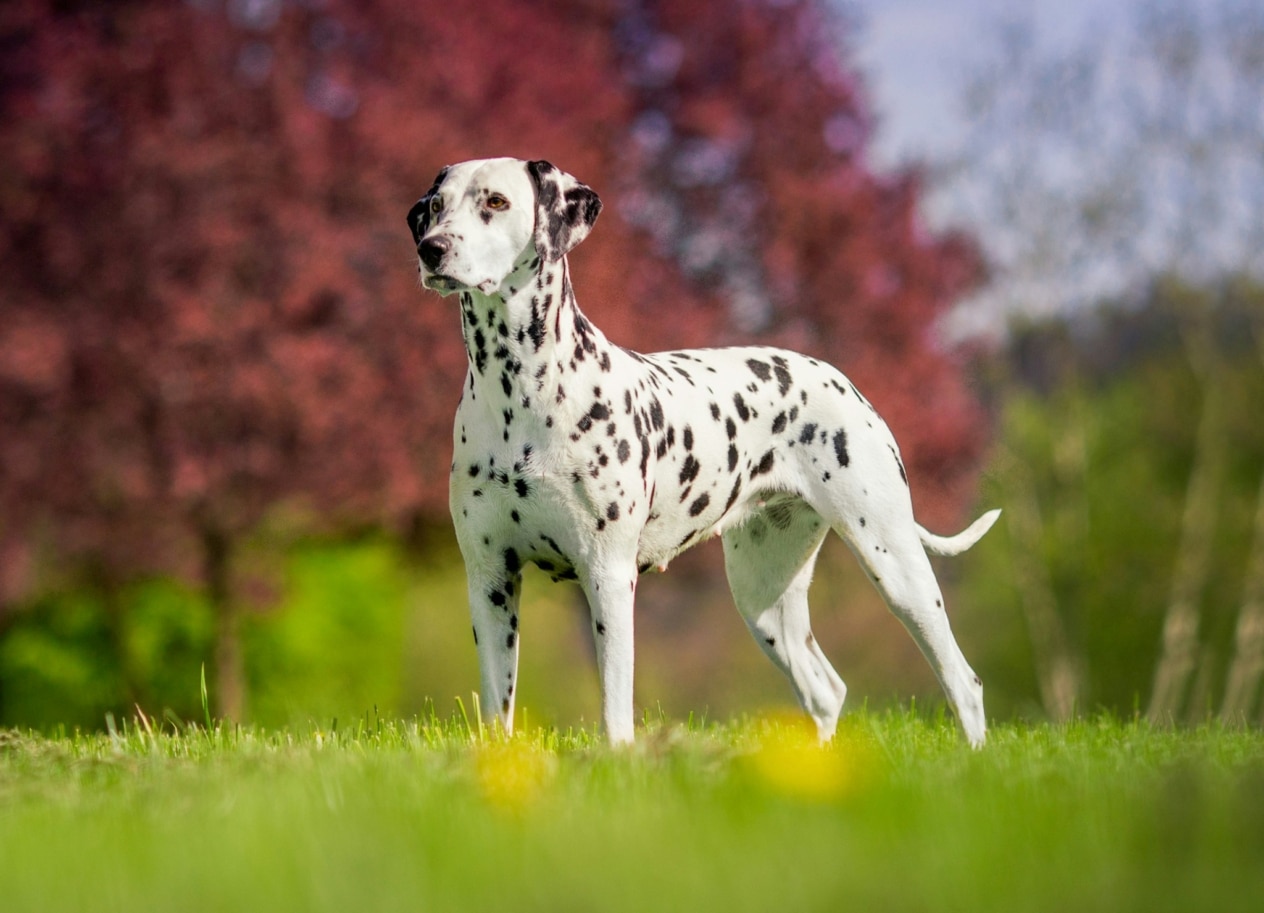
The History of the Dalmatian’s Origin
The exact origins of this breed remain unknown, but its depictions can be found on ancient frescoes in Egypt, Greece, and India. The name itself hints at a possible connection to Dalmatia, a historical region in Croatia. In this area, as early as the 17th century, spotted dogs were used for guarding and escorting carriages. This tradition also existed in Great Britain, where Dalmatians became part of the royal horse-drawn carriages.
In the 20th century, the breed became a true star thanks to literature, painting, and cinema. In 1956, British writer Dodie Smith released the book 101 Dalmatians, which quickly gained popularity. By 1961, Disney had released the animated film of the same name, making the breed world-famous. Since then, Dalmatians have been associated with friendliness, playfulness, and a love for adventure.
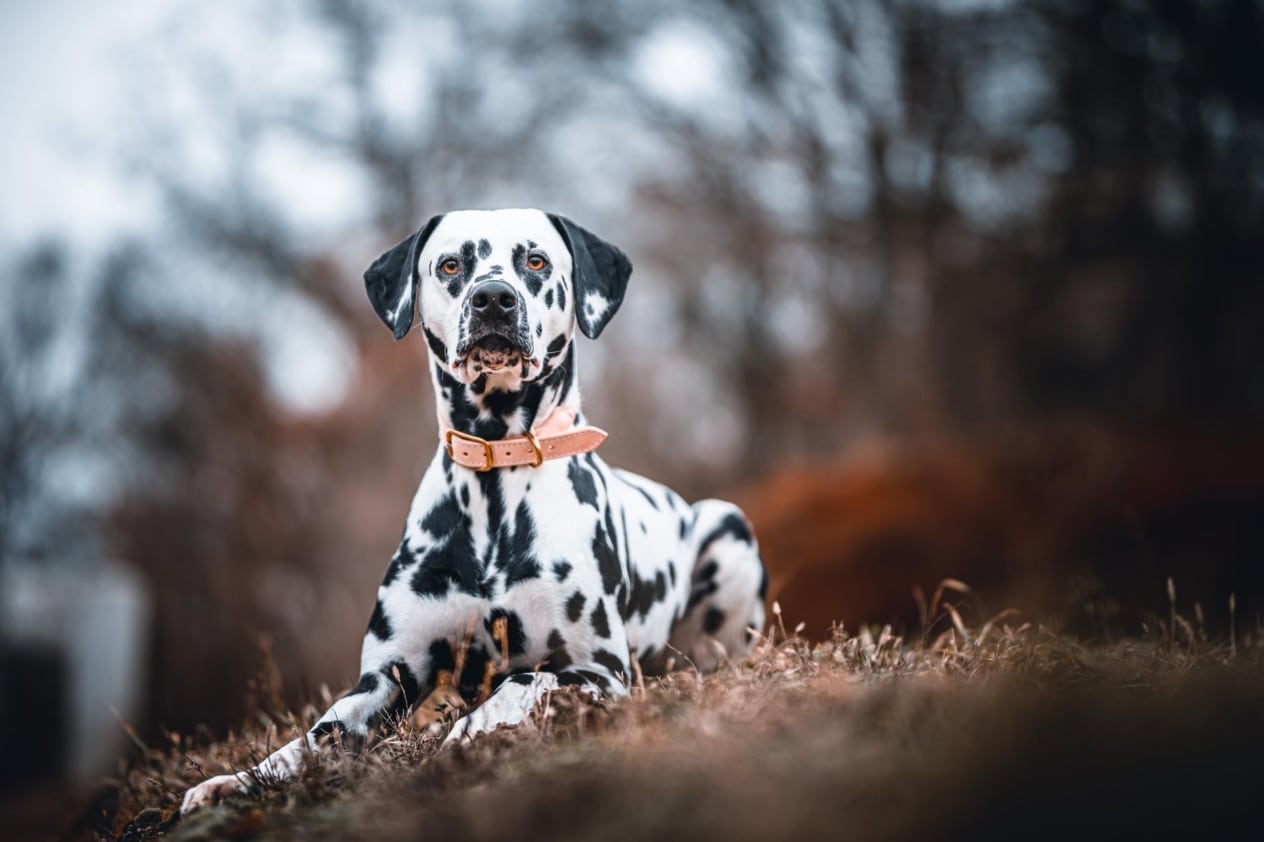
Appearance of the Dalmatian
Dalmatians are medium-sized dogs with a well-proportioned, muscular build that remains lightweight. Their weight ranges from 24 to 32 kg, and their height reaches 54–61 cm. Built for movement, they have excellent endurance and speed.
Their coat is short, dense, smooth, and lacks an undercoat. It fits snugly to the body and can feature either black or dark brown spots. The base color is white, and Dalmatian puppies are born completely solid-colored for the first 10–14 days. Their characteristic spots gradually develop and spread evenly across their bodies.
The eye color of a Dalmatian depends on its coat. Black-spotted dogs have dark brown or black eyes, while those with dark brown spots may have light amber-colored eyes.
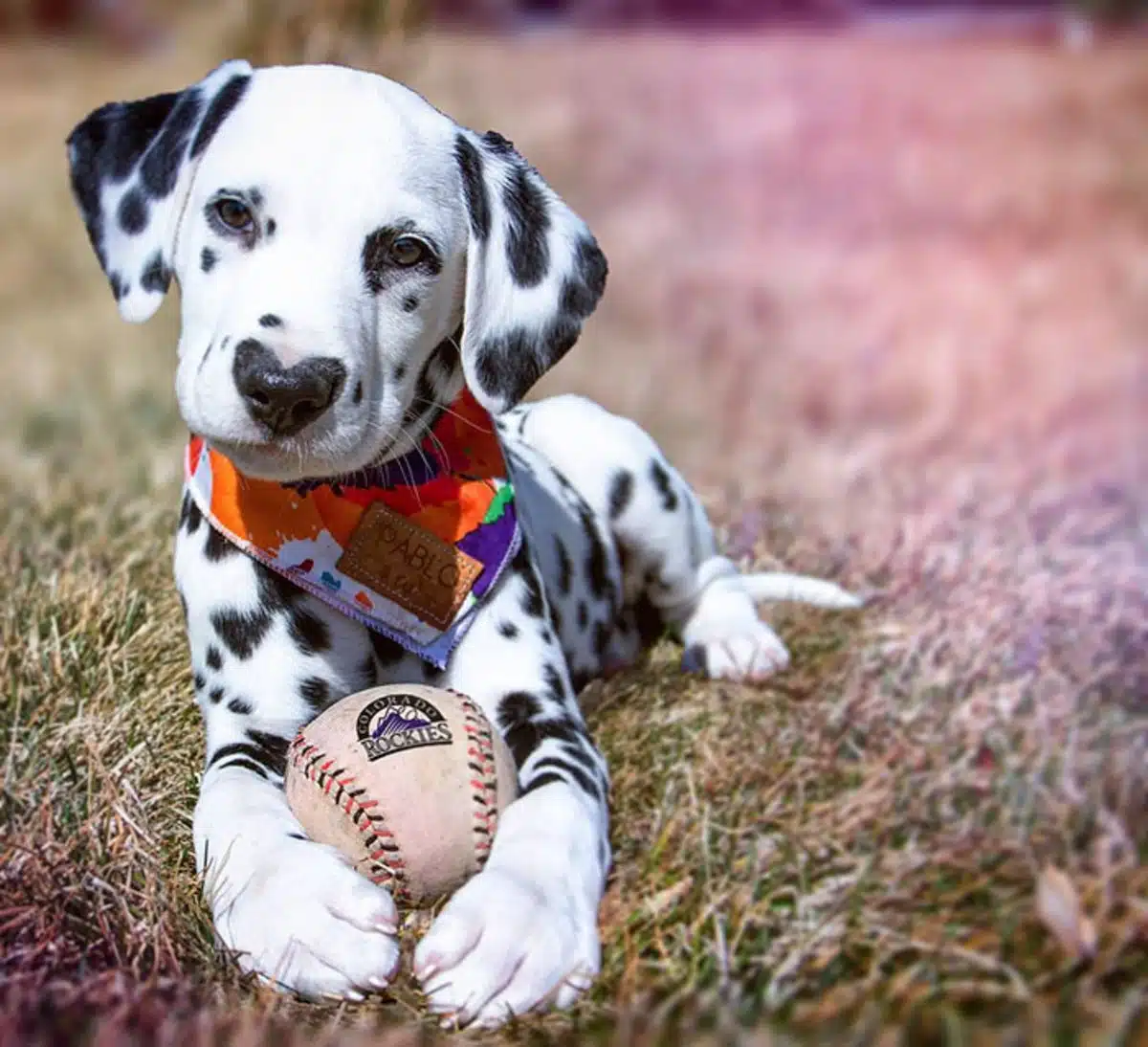
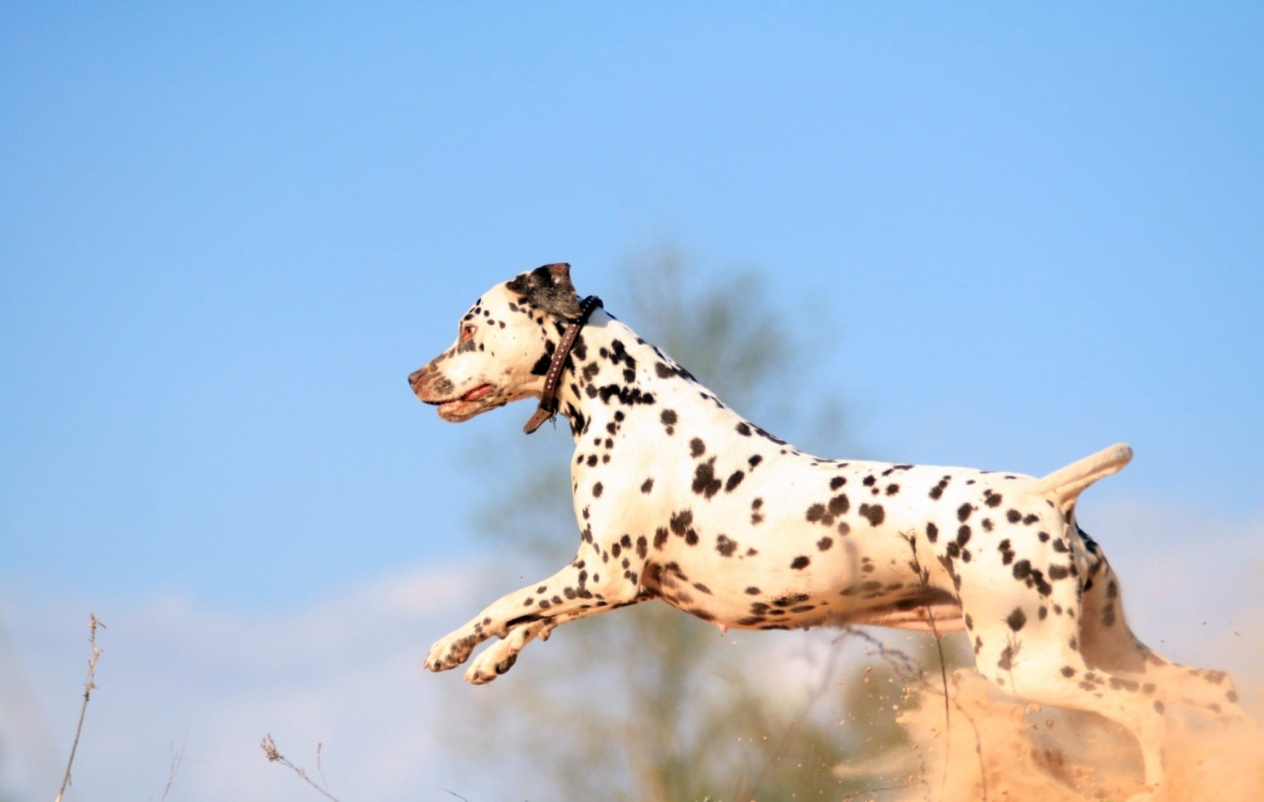
Dalmatian Temperament
If you had to describe a Dalmatian’s character in just a few words, they would be: curiosity, loyalty, and boundless energy. This dog can become your best friend or a real challenge.
First, Dalmatians are highly intelligent. They learn well, quickly memorize commands, but sometimes prefer to do things their own way. To properly train your pet, be consistent in your approach and use positive reinforcement methods. These dogs do not tolerate harsh treatment.
Second, if you don’t lead an active lifestyle, work long hours, or frequently travel, this breed may not be the best choice. Dalmatians are not suited for long periods of solitude. They require movement and companionship. Without enough physical exercise, they may resort to destructive behavior like chewing furniture. Be prepared for active walks of 1.5–2 hours a day.
Third, Dalmatians are very social and get along well with children and other animals. However, due to their high energy levels, they might accidentally knock over small children while playing. That’s why it’s best to have a Dalmatian in families with kids aged six and older, as they can better understand how to interact with a dog.
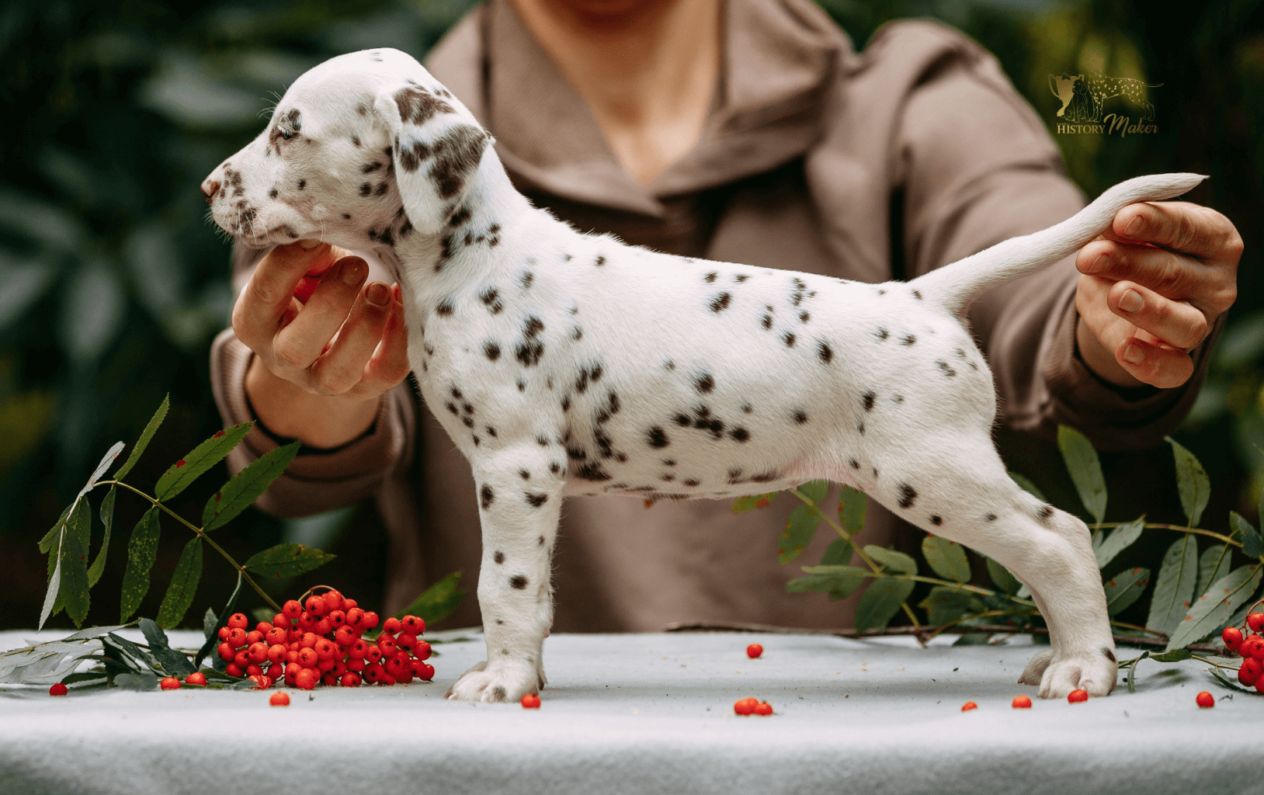

Dalmatian Health
Dalmatians have certain genetic traits that should be monitored with a veterinarian:
- Prone to urinary stones. Dalmatians are more likely than other breeds to develop bladder and kidney stones due to their unique uric acid excretion system. To minimize risks, control protein intake, ensure proper hydration, and regularly check urine for sediment.
- Allergy sensitivity. Dalmatians may react to different types of food, pollen, chemicals, and even other animals’ fur. Monitor for allergic reactions, provide regular parasite prevention, and use high-quality grooming products for sensitive skin.
- Deafness. Unfortunately, 10–12% of Dalmatians are born completely deaf, and up to 20% have unilateral deafness. This is linked to pigmentation and hereditary factors. It’s important to test a Dalmatian puppy’s hearing at the vet and, if necessary, learn hand signals for training.
Dalmatian Nutrition
Since Dalmatians are prone to urinary issues, they need to drink plenty of water and maintain a well-balanced diet. If you feed your pet commercial food, choose low-protein formulas specifically designed for breeds susceptible to urinary stones.
For natural feeding, the diet should include:
- lean meats,
- vegetables (pumpkin, carrots, zucchini),
- grains (buckwheat, rice),
- dairy products (kefir, low-fat cottage cheese for gut health).
Avoid foods rich in purines, such as organ meats (liver, heart, kidneys), fatty meats, and fish, as they can contribute to stone formation.
Dalmatian Grooming
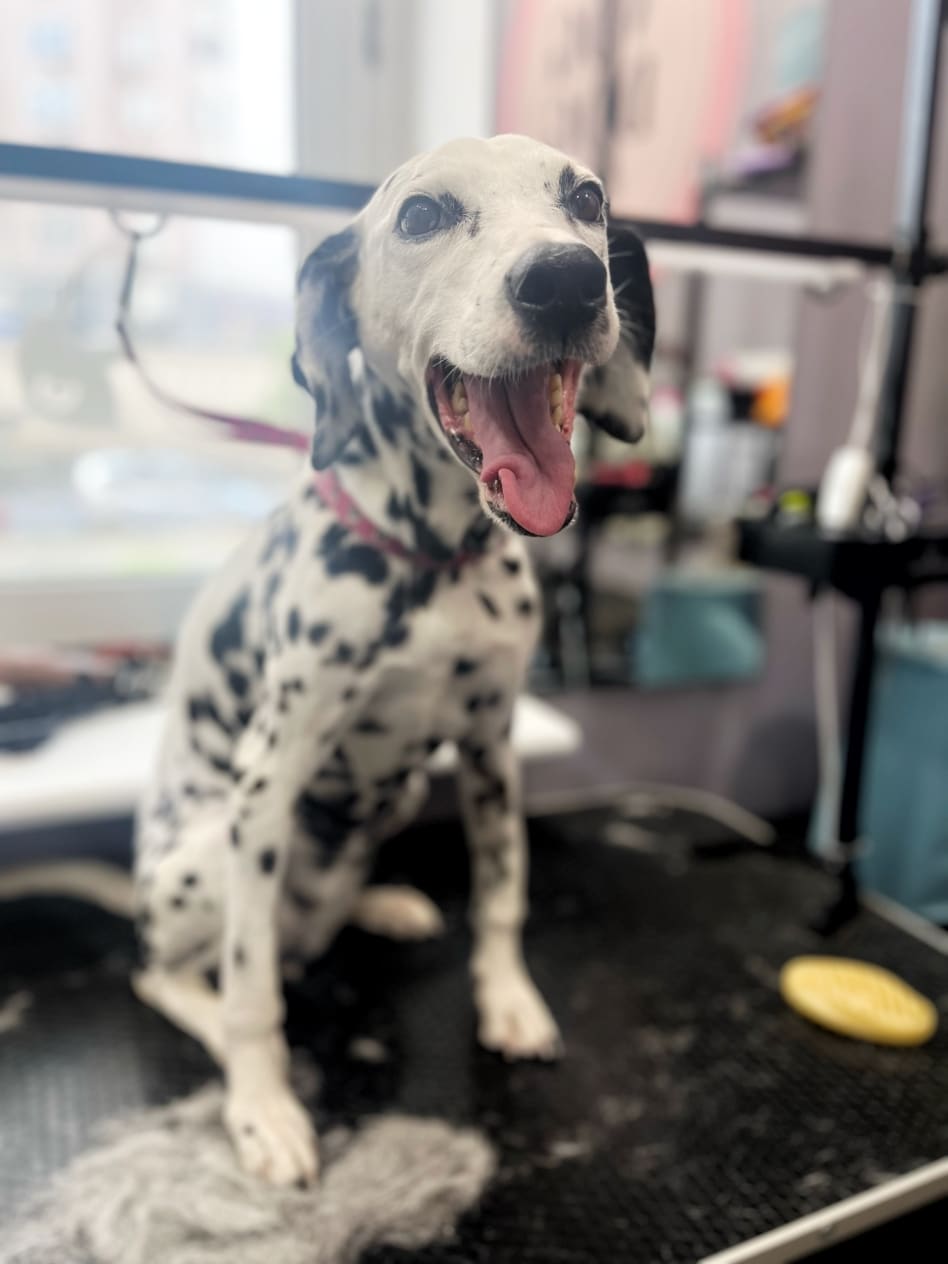
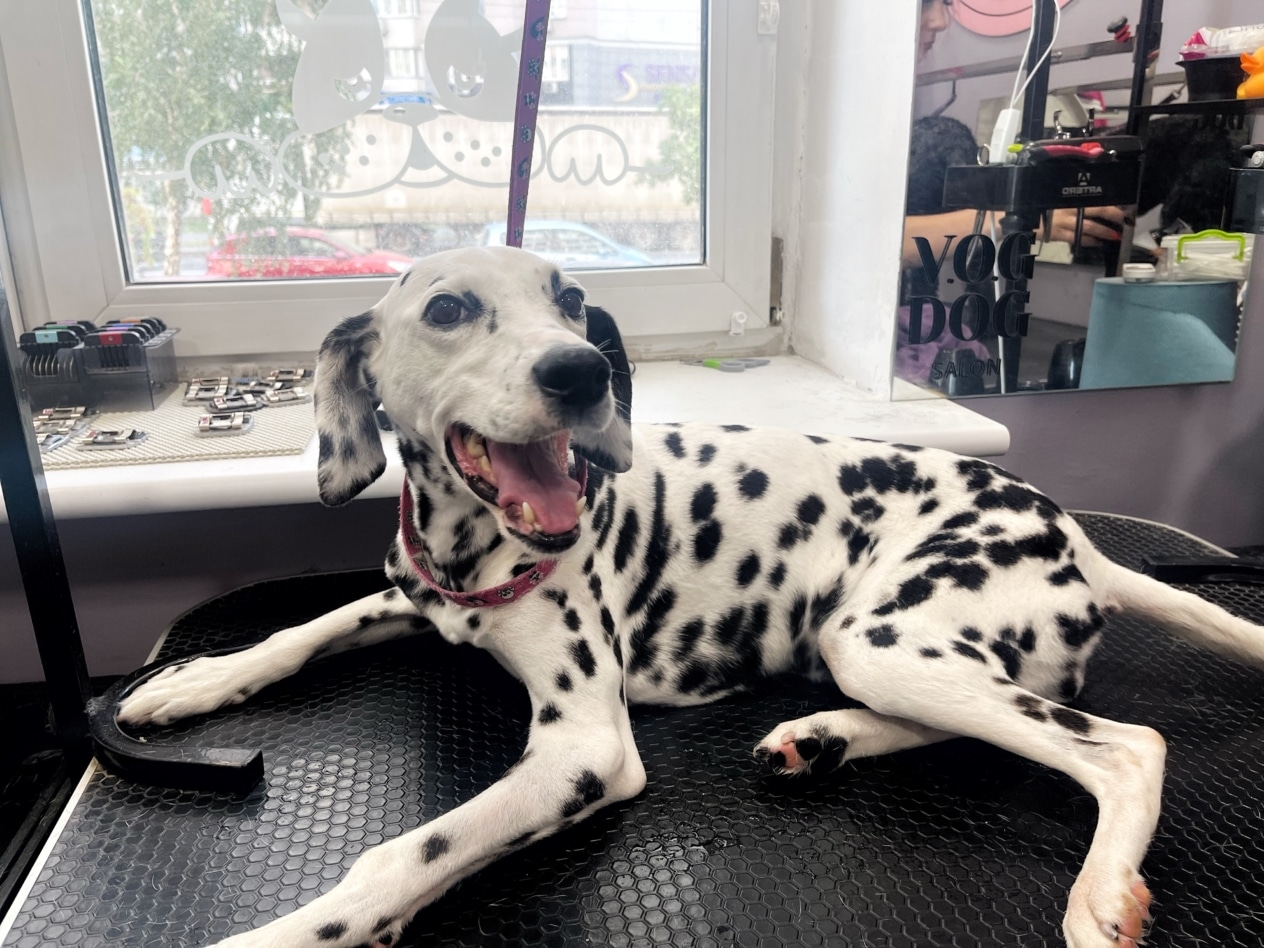
Photo of a Dalmatian in Our Salon
If you’ve chosen a Dalmatian as your pet, you might think grooming will be easy and infrequent since their coat is short, smooth, and completely lacks an undercoat. However, here’s a reality check – Dalmatians shed all year round. Their short, stiff hairs can get embedded in furniture, carpets, and clothing, so brushing should become an almost daily routine. Invest in a rubber grooming glove or a silicone brush and get to work.
Bathing, on the other hand, should be kept to a minimum. Dalmatians have sensitive skin and are prone to allergies, so avoid washing them too often with shampoos. If your dog isn’t particularly dirty, simply wipe its coat with a damp microfiber cloth instead.
Trim their nails every 3–4 weeks, and since Dalmatians are very active, regularly check their paw pads for cracks or cuts. If they become dry, apply a protective wax. After walks, always wipe their paws with a damp cloth or rinse them with water. Clean their ears once a week using a cotton pad and a special ear lotion, and their eyes can be wiped even more frequently.
Like all dogs, Dalmatians can develop plaque and tartar buildup on their teeth. To prevent this, brush their teeth 2–3 times a week with a special toothbrush and toothpaste, schedule an annual professional dental cleaning, and provide chew treats that help remove plaque.
Although Dalmatians don’t require haircuts, professional grooming can make your life much easier, especially when you’re short on time, your dog is shedding excessively, or there’s an unpleasant odor. Groomers will efficiently remove loose hair, clean and moisturize the skin with professional products, neatly trim nails, clean the ears and eye area, and dry the coat using a booster, which helps remove even more dead hair.
If you want your Dalmatian to always look neat and well-groomed, trust professional groomers. At V.O.G DOG SALON, we know how to make grooming a comfortable experience for your Dalmatian.
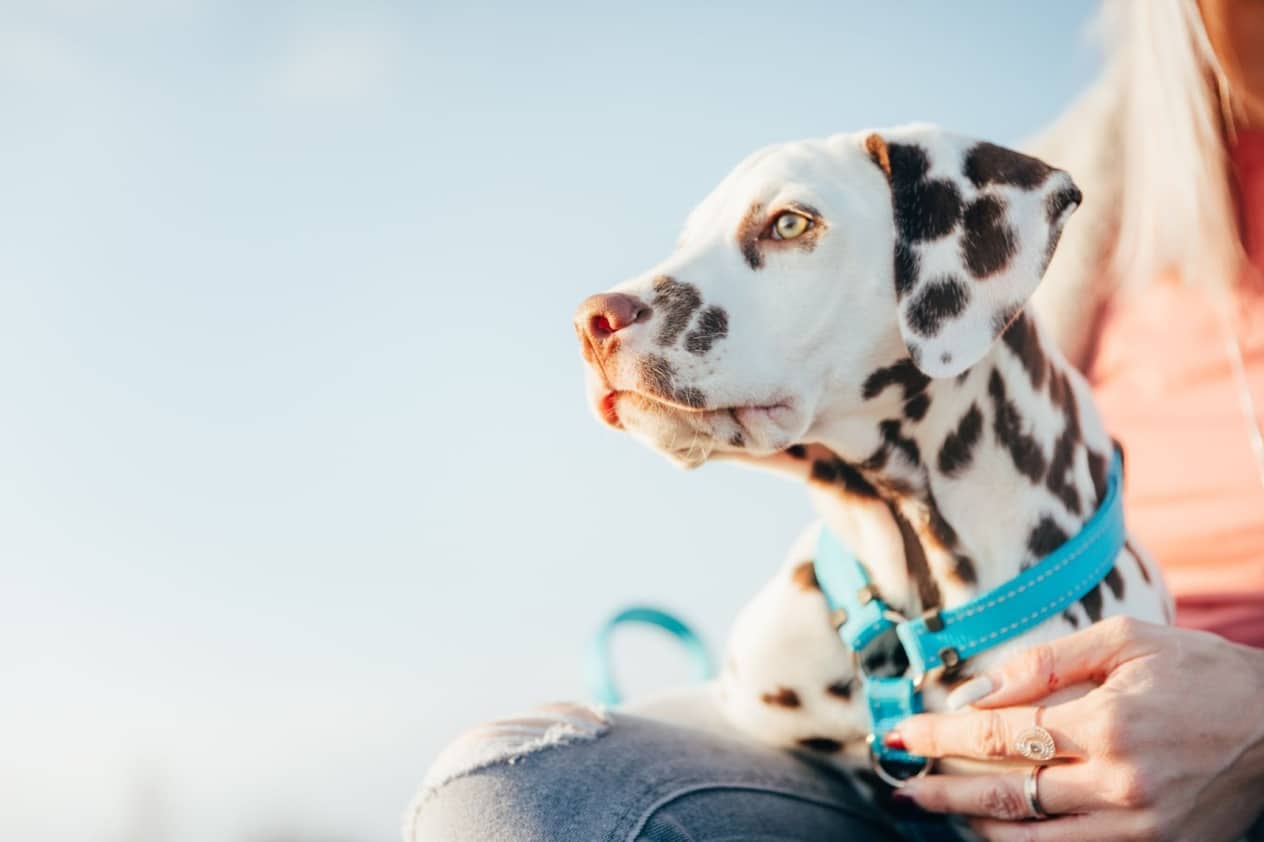
Conclusion
The Dalmatian is an energetic, intelligent, and independent dog, perfect for active individuals who are ready to dedicate time and attention to their pet. It makes an excellent companion for those who enjoy sports, long walks, and shared adventures. However, this breed is not suitable for people leading a calm lifestyle or looking for an obedient, low-maintenance pet. Dalmatians require both physical and mental stimulation, consistent discipline, and patient training. If you’re prepared for this lifestyle, a Dalmatian will become a cherished member of your family.

